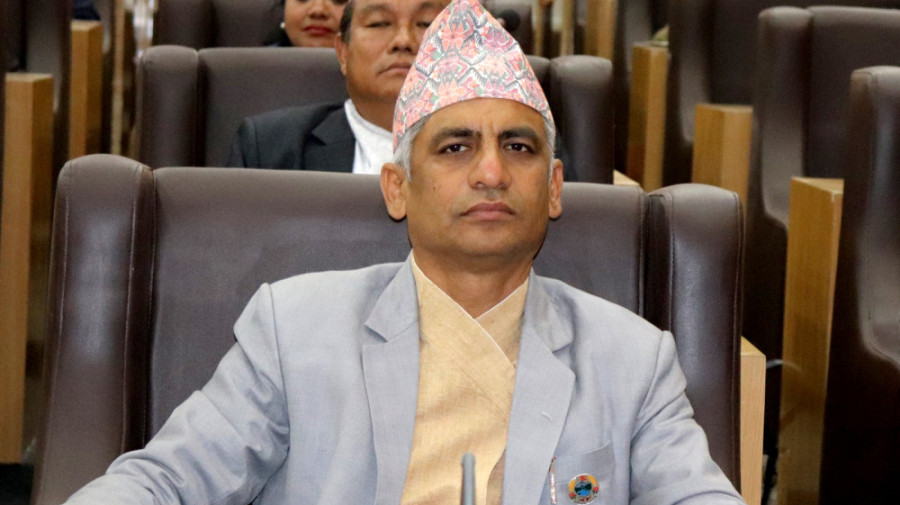Editorial
What next in Koshi?
The onus is on new CM and top leaders of main parties to ensure the government stays the course.
Koshi Province now has the dubious distinction of catering to eight chief ministers in the six years since the 2017 elections that institutionalised a three-tier federal system. In fact, when Nepali Congress lawmaker Kedar Karki was appointed the new chief minister of Koshi on Saturday, it was the fifth change in the provincial government since the second set of elections in 2022. Karki was appointed as per Article 168(5) of the constitution after showing his majority in the 93-member provincial assembly. His last-minute candidacy was the last throw of dice to save the provincial parliament after every other constitutional option for government formation in Koshi had been exhausted. He now has 30 days to establish his majority in the provincial assembly, or the province will head towards mid-term polls. And it is by no means certain that he can until that time retain the support of the 47 lawmakers whose signatures he submitted to Province Head Parshuram Khapung on Saturday. The Congress lawmaker had the support of just eight lawmakers from his own party; but he had miraculously secured the backing of 39 lawmakers of the CPN-UML, the main opposition.
Karki has become chief minister as a rebel candidate from the Nepali Congress. The party establishment in Kathmandu had decided to support Maoist Centre provincial lawmaker Indra Bahadur Angbo as Koshi chief minister. Karki and the Congress rebel faction led by Shekhar Koirala were having none of it. Koirala backed Karki’s rebel candidacy, even though the latter would have to rely on the UML, the main opposition, to put together the required votes. Koirala faction has of late been vocal on the need for the Congress to pull out of the federal coalition and support the government from the outside. The party, it reckons, can no more shoulder the mistakes of the Pushpa Kamal Dahal government. With the UML’s support for Karki in Koshi threatening to unravel the coalition at the centre, Maoist Centre Chairman Dahal and Congress President Sher Bahadur Deuba scrambled to get Koirala to commit that the new provincial set-up would not in any way threaten the ruling coalition in Kathmandu—and Koirala did commit to it.
While stability in Koshi is uncertain, one admirable outcome of this whole affair was how a handful of provincial lawmakers dared to defy the diktat from the centre and decided on government formation on their own. If the provincial politicians and lawmakers are to blindly obey orders from Kathmandu, there is no point in having provincial government machinery. This should be a lesson for the federal-level top leaders who still want to call all the shots in the provinces by blatantly defying the spirit of the new constitution that envisions progressive devolution of powers and resources to the provinces and local bodies. Now the onus is on the new chief minister as well as the top leaders of the three main parties to ensure that the government stays the course. Above all, this means that Kathmandu should, as far as possible, let Koshi solve its own problems. Mid-term elections in Koshi, with all their reverberations in national politics, are the last thing the country battling an acute economic crisis needs right now.




 13.12°C Kathmandu
13.12°C Kathmandu














